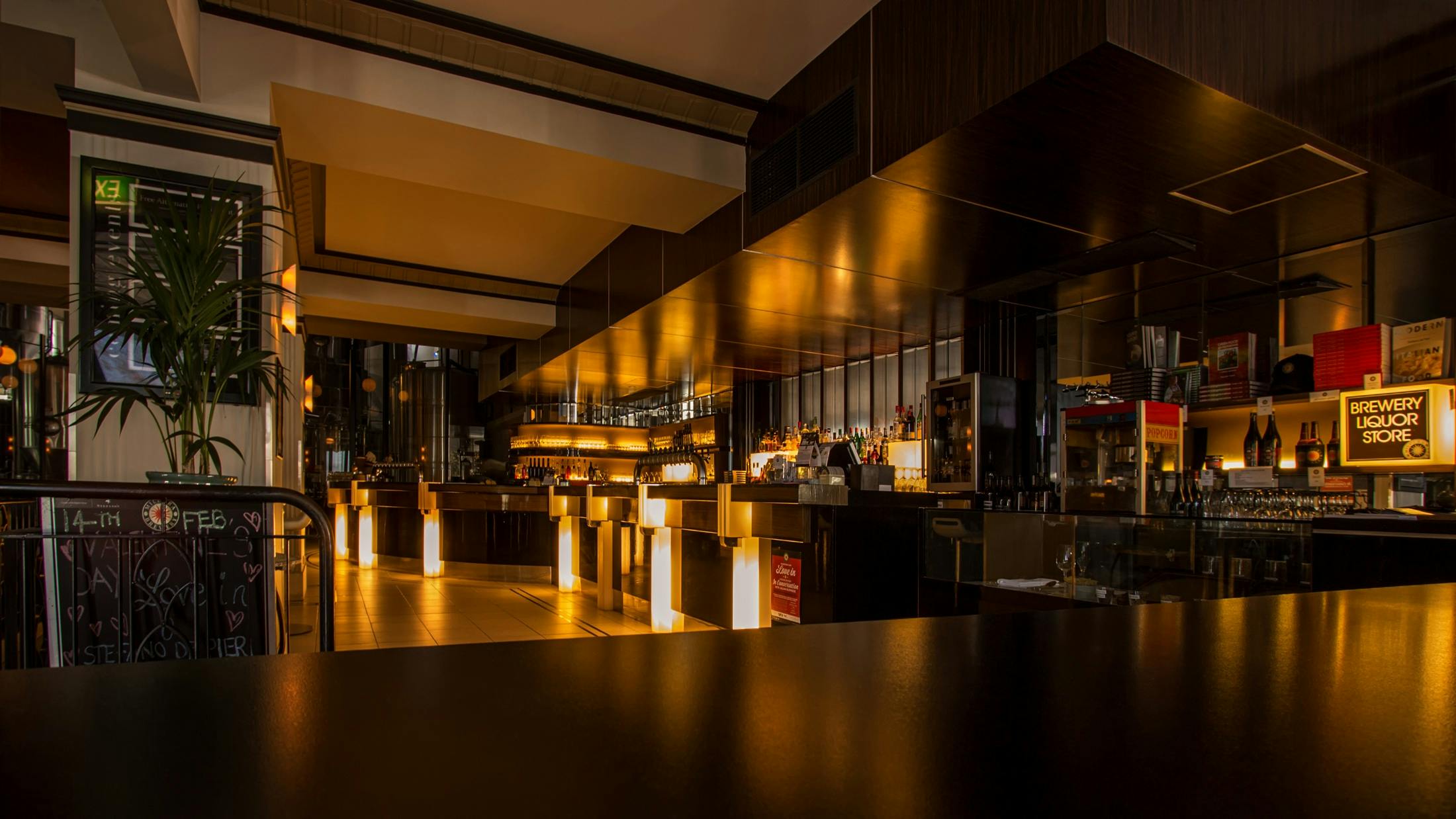Every hospitality owner knows that guest satisfaction matters. But do you know exactly how much a poor guest experience is costing your business, and what return on investment you're leaving on the table by not prioritizing quality standards?
The numbers are more dramatic than most hospitality businesses realize. And the good news? The path to capturing that lost revenue is clearer than ever.
The Staggering Cost of Getting It Wrong
Poor customer service isn't just an operational problem, it's a financial crisis. U.S. businesses risk losing $856 billion annually because of poor customer experiences, with the hospitality sector bearing a significant portion of that burden. For individual properties, this translates to empty rooms, canceled bookings, and a reputation that's increasingly difficult to repair.
The speed at which guests abandon brands after negative experiences is alarming. Research shows that one in three customers will leave after just a single bad interaction, while 86% of consumers will abandon a brand after experiencing just two negative encounters. In an industry built on repeat business and referrals, these statistics represent an existential threat.
Consider what happens when service quality declines. Studies reveal that 87% of consumers will spend less or stop spending entirely on brands that cut back on service quality. Nearly half—48%—will actively share their negative experiences with family, friends, and online audiences. In today's digitally connected world, a single poor experience doesn't just lose one guest; it potentially impacts hundreds of future bookings through negative word-of-mouth and damaging online reviews.
The financial impact compounds over time. When guests leave after negative experiences, they don't just take their current booking revenue with them—they take every future stay, every referral they would have made, and every positive review they might have written. For a hotel that might have earned $50,000 from a loyal guest over their lifetime, a single poor experience can represent a six-figure loss when you factor in all the potential guests that person might have influenced.
What Guest Experience Is Really Worth
Understanding the cost of failure is only half the equation. The revenue potential of excellent guest experience reveals why quality standards aren't just about avoiding losses—they're about driving substantial growth.
Customers who rate their experience highly are extraordinarily valuable. Guests who give a property a perfect 10 out of 10 rating spend 140% more than average customers and remain loyal up to six times longer. This isn't just about satisfaction surveys; it's about creating experiences so exceptional that they fundamentally change guest behavior and spending patterns.
The pricing power that comes with superior guest experience is substantial. Research indicates that 86% of buyers will pay premium prices for better experiences, particularly in high-consideration categories like hospitality. Guests don't just choose properties based on the lowest rate, they choose based on expected experience quality and are willing to invest more for the assurance of excellence.
Retention economics tell an even more compelling story. A modest 5% increase in customer retention can lead to revenue increases ranging from 25% to 95%. Meanwhile, acquiring a new customer costs five times more than retaining an existing one. For hospitality businesses operating on thin margins, these numbers represent the difference between struggling to fill rooms and building a sustainable, profitable operation.
Loyal guests provide far more than just their own repeat bookings. They recommend properties to friends and family, leave positive online reviews that influence countless other travelers, and often spend more during their stays by upgrading rooms, dining at on-site restaurants, and booking additional services. This multiplier effect means that the value of a single satisfied guest extends far beyond their individual transactions.
Why Quality Standards Deliver ROI
Given these numbers, the question isn't whether to invest in guest experience—it's how to systematically ensure excellence at scale. This is where quality standards and verification systems demonstrate their return on investment.
Hotels that adhere to strict quality assurance protocols consistently meet or exceed guest expectations, leading to favorable reviews, stronger brand reputation, and increased profitability. The research shows that properties with defined, measurable quality standards see direct correlations with occupancy rates and revenue performance.
Quality standards deliver ROI through several distinct mechanisms. First, they create operational consistency. When every team member understands exactly what excellence looks like and has clear protocols to follow, service quality becomes reliable rather than random. This consistency is what transforms occasional guests into loyal customers.
Second, standards provide early warning systems. Regular quality audits and guest feedback monitoring identify issues before they become viral complaints or widespread problems. Catching and resolving a cleanliness concern after one guest complaint is far less expensive than addressing it after fifty negative reviews have damaged your online reputation.
Third, certified quality standards serve as powerful marketing differentiators. In a crowded market where travelers struggle to distinguish between properties, verification badges and quality certifications provide instant credibility. They answer the fundamental question every traveler asks: "Can I trust this property to deliver what it promises?"
The competitive advantage is measurable. Studies of certified hotels show they can increase key performance indicators compared to their competitive set through first-mover advantages in quality verification. Properties with recognized quality certifications often command higher average daily rates, achieve better occupancy levels, and see stronger direct booking percentages than comparable non-certified competitors.
The Prevention Playbook: Making Quality Standards Work
Understanding the ROI of quality standards is valuable; implementing them effectively is what drives results. Here's how leading hospitality businesses are turning quality standards into competitive advantages:
Establish Measurable Benchmarks
Generic commitments to "great service" don't drive improvement. Effective quality standards include specific, measurable criteria across every guest touchpoint. This might include cleanliness protocols with defined checklists, response time standards for guest requests, or training requirements for every customer-facing role. When standards are specific and measurable, teams know exactly what's expected and managers can objectively assess performance.
Create Accountability Systems
Standards only work when they're consistently enforced. Leading properties implement regular quality audits, mystery shopping programs, and systematic guest feedback collection. These accountability mechanisms ensure that quality standards aren't just documents gathering dust—they're living practices that shape daily operations.
Invest in Team Training
Your staff delivers the guest experience, so their training directly impacts your ROI. Properties with comprehensive training programs that cover not just procedures but also the "why" behind quality standards see significantly better compliance and guest satisfaction scores. When team members understand how their actions impact guest experience and business results, they become active participants in quality maintenance rather than passive rule-followers.
Leverage Technology Strategically
Modern hospitality technology enables quality standards that weren't previously possible. Automated guest communication systems ensure no request falls through the cracks. Smart room sensors can alert housekeeping to maintenance issues before guests encounter them. Guest feedback platforms capture real-time satisfaction data that enables immediate service recovery.
Pursue Third-Party Verification
Internal quality standards are valuable, but third-party verification provides external credibility that drives booking behavior. When properties earn verification badges from recognized authorities, they differentiate themselves in a market where guests increasingly struggle to identify truly quality establishments. The investment in verification processes typically pays for itself through increased direct bookings and reduced acquisition costs.
The Bottom Line on Quality Investment
The economics of guest experience in hospitality are clear and compelling. Poor experiences cost businesses billions annually while excellent experiences generate premium pricing, loyal customers, and powerful word-of-mouth marketing. The gap between these two outcomes is bridged by systematic quality standards that ensure consistent excellence.
For hospitality businesses, the question isn't whether to invest in quality standards—it's whether you can afford not to. Every day without systematic quality assurance is a day of lost revenue, diminished reputation, and competitive disadvantage. Every guest who experiences substandard service represents not just one lost booking, but potentially hundreds of future guests who will never discover your property because of negative reviews and poor word-of-mouth.
The good news? The path forward is well-established. By implementing measurable quality standards, creating accountability systems, investing in team development, and pursuing credible verification, hospitality businesses can transform guest experience from a cost center into their most powerful revenue driver.
In an industry where 79% of companies now recognize customer experience as a source of revenue rather than just a cost, the leaders will be those who move beyond acknowledging importance to systematically ensuring excellence. The real cost of poor guest experience isn't just what you lose today—it's everything you could have gained tomorrow.
Ready to turn quality standards into competitive advantage? Discover how Verramark's verification process helps hospitality businesses systematically improve guest experience while building the credibility that drives bookings.


.jpg)



